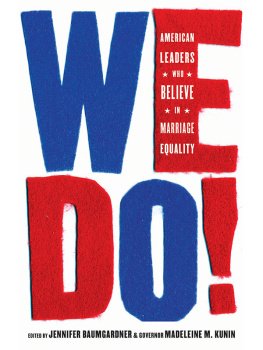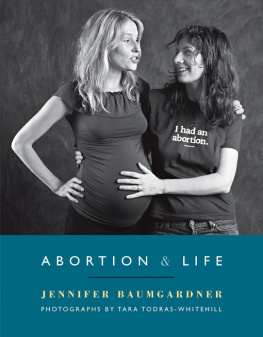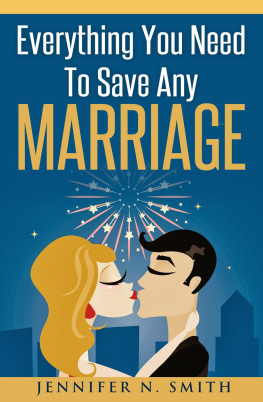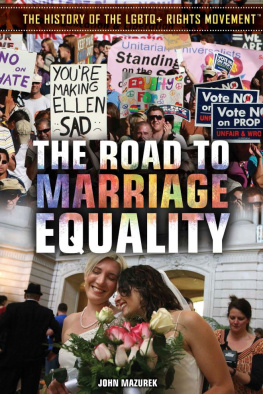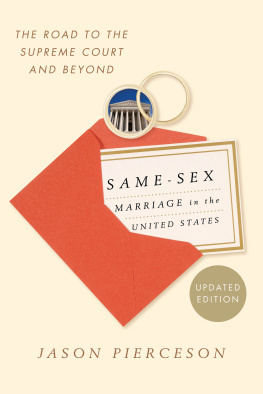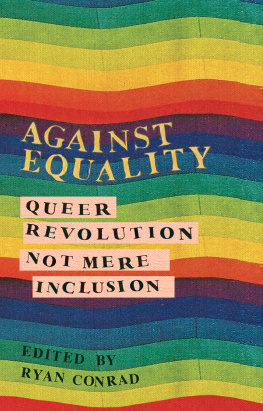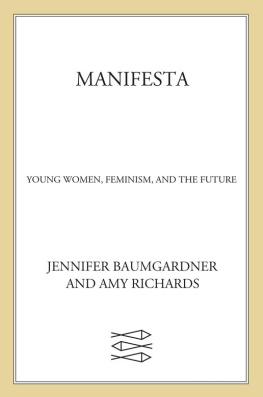
All rights reserved. No part of this book may be used or reproduced in any manner whatsoever without the written permission of the publisher.
Published by Akashic Books
2013 by Jennifer Baumgardner & Governer Madeleine M. Kunin
ISBN-13: 978-1-61775-161-5
eISBN:9781617752018
Library of Congress Control Number: 2013938542
All Rights Reserved.
Jennifer Baumgardner photo by Ali Price
Governer Madeleine M. Kunin photo by Paul Boisvert
Harvey Milk and works of Harvey Milk are the property of the Milk Family and & L. Stuart Milk. All proceeds from the use of the works of Harvey Milk are donated to the Harvey Milk Foundation. The Harvey Milk speech included in this volume is used by permission. To donate, go to http://milkfoundation.org/donate/.
Akashic Books
PO Box 1456
New York, NY 10009
info@akashicbooks.com
www.akashicbooks.com
Acknowledgments
The editors wish to thank Alyssa Bowie, Devorah Shubowitz, Tyler Perkins, and Taryn Mann for their research and editorial assistance. Friendly expertise was also provided by staff at Freedom to Marry and Empire State Pride Agenda. Special thanks to Nicole Collins Bronzan, George Simpson, Erica Pelletreau, Representative Bill Lippert, Virginia Apuzzo, and Dean Hara. Last but not least, thanks to Johnny Temple and the whole Akashic Books enterprise for being an inspiring and righteous publisher, creating books that change consciousness.
Editors Note
Gay rights are the most significant civil rights battle of our time. The fight for marriage equality is the symbol of that battle. Barring same-sex couples from the institution that confers status, legitimacy, and visibility onto a couple or family is a final remaining prejudice, soon to be as incomprehensible as whites-only drinking fountains and women not being allowed to vote.
As recently as four years ago, in the 2008 election, supporting gay marriage when running for office was widely viewed as political suicide. A decade ago, it (along with abortion) was a reliable wedge issue deployed to undermine a progressive candidates chance to win. And yet, certain brave leaders got there early, grasping the fundamental American values inherent in this battle, long before there was a groundswell of support for marriage equality or more than a fifth of our states having already adopted it.
The two of us come at the issue from different generations and from different roles within the political sphereJennifer as an activist; Madeleine as a former governor of Vermontyet each of us has evolved dramatically in our perspectives. Jennifer, a third-wave feminist, has come to realize and respect the power of the institution, even as she remains critical of its historic patriarchal function. Madeleine, a second-wave politician, had towithin her political termwrap her mind around the concept of gay marriage, even as she sensed instinctively that her only ethical option was to support it.
What role does gay marriage have in the larger movement for equality? Gay marriage is the first big monument of integration for this particular oppressed minority. Along with the abolition of slavery and a womans right to vote, marriage equality will soon be the law of the land. Each of these historic paradigm shifts acknowledged a common truth: our shared humanity.
This isnt a book about the debate around gay marriage, how marriage should be defined, or whether being part of this institution is even something any self-respecting gay person should want. There is no attempt here to show both sides of the issue, nor is this book a comprehensive look at the speeches and political statements most important to the story of marriage equality. We dont tell the story of the countless grassroots activists or the brave couples who have made gay marriage not just a reality, but a human story with faces and lives with which we can identify and connect. Instead, this volume celebrates human rights by shining a light on some of the leaders who, when asked if they support gay rights in all ways, have eventually and enthusiastically answered, We do!
Initially, change was characterized by activists bringing lawsuits and then courts delivering decisions to a mixed-to-resistant public. Today, support courses through the electorate, magnetizing more and more people to see the essential fairnessthe American-nessof marriage equality. Whether or not progressives agree that marriage is of virtue, a critical mass of people believe that access to it is valuable.
In June 2013, the Supreme Court ruled that federal benefits such as a pension and Social Security must be extended to gay spouses (and that the 1996 Defense of Marriage Act was unconstitutional). Further, a second case decided on the same day found that the citizen-initiated amendment banning marriage in California (and deemed unconstitutional by lower courts) had no legal standing to appeal to the Supreme Court.
Because money needs to be where ones mouth is, 10 percent of the profits from the sale of this book will go to Freedom to Marry (freedomtomarry.org), to support their mission of winning same-sex marriage in all states and increasing the national majority in favor of marriage equality. Additionally, a donation will be made to the Harvey Milk Foundation to honor Milks historic contribution to gay visibility, representation, and rights.
Jennifer Baumgardner & Madeleine M. Kunin, Editors
September 2013
INTRODUCTION
by Jennifer Baumgardner
Im a feminist and Ive been once since approximately birth. My definition of feminism continues to evolve as my life unfolds, but at age ten I would have said it meant girls can do whatever boys can. Today, Id add that feminism is a movement that makes it safeinviting, evento bring all parts of oneself into the room. The ability to be the whole of oneself is no small achievement in the face of daily opportunities to deny who we are and what has happened to us. But being ones whole self is the root of power, authenticity, and happiness. Feminism informs and intersects other human rights movements too, including the movement for gay rights. One of the most crucial gifts of that movement is that it enables all of us to consider, as feminism did, the institution of marriage and figure out whether and why it has value.
Feminists before my generation did heavy lifting when it came to transforming the role of marriage. Working women such as Helen Gurley Brown critiqued the notion that women had to be wed in order to be sexual and dispensed with the belief that a woman without a ring was either tragic or loose. Radical pioneers such as Laura X spoke out about violence and rape that, because it happened within marriage, was invisible and tacitly allowed, and created resources for women fleeing these injustices. Feminists such as Tish Sommers exposed the financial stakes when women were kept out of the paid labor force and vulnerable to being downsized via divorce from ones security as a housewife. And finally, feminists too numerous to mention redeemed and recast the single woman as desirable, adventurous, and independent while diminishing the social stigma of single parenthood. Phew!
All of this redefinition might account for why I never felt like I had to get marriedor even that it was particularly smart to do so. In my twenties and early thirties, when I fell in love primarily with women, marriage was not only unappealing to me as a feminist, but also (poignantly) out of reach. I knew women who married other women in private ceremonies amid friends or who entered into domestic partnership agreements. Their bonds were legitimate and moving, but somehow less than. After all, at that time there was no larger cultural understanding of gay marriage and no legal precedent. For me, being in a same-sex relationship removed the obligation and the opportunity of marriage. That loss was a little sadI felt excluded; I wanted, in some way, the acceptance that being married equaled in my head. Not marrying my girlfriend could almost be a choice I madeexcept for the fact that the decision had been made for me by law and culture.
Next page
